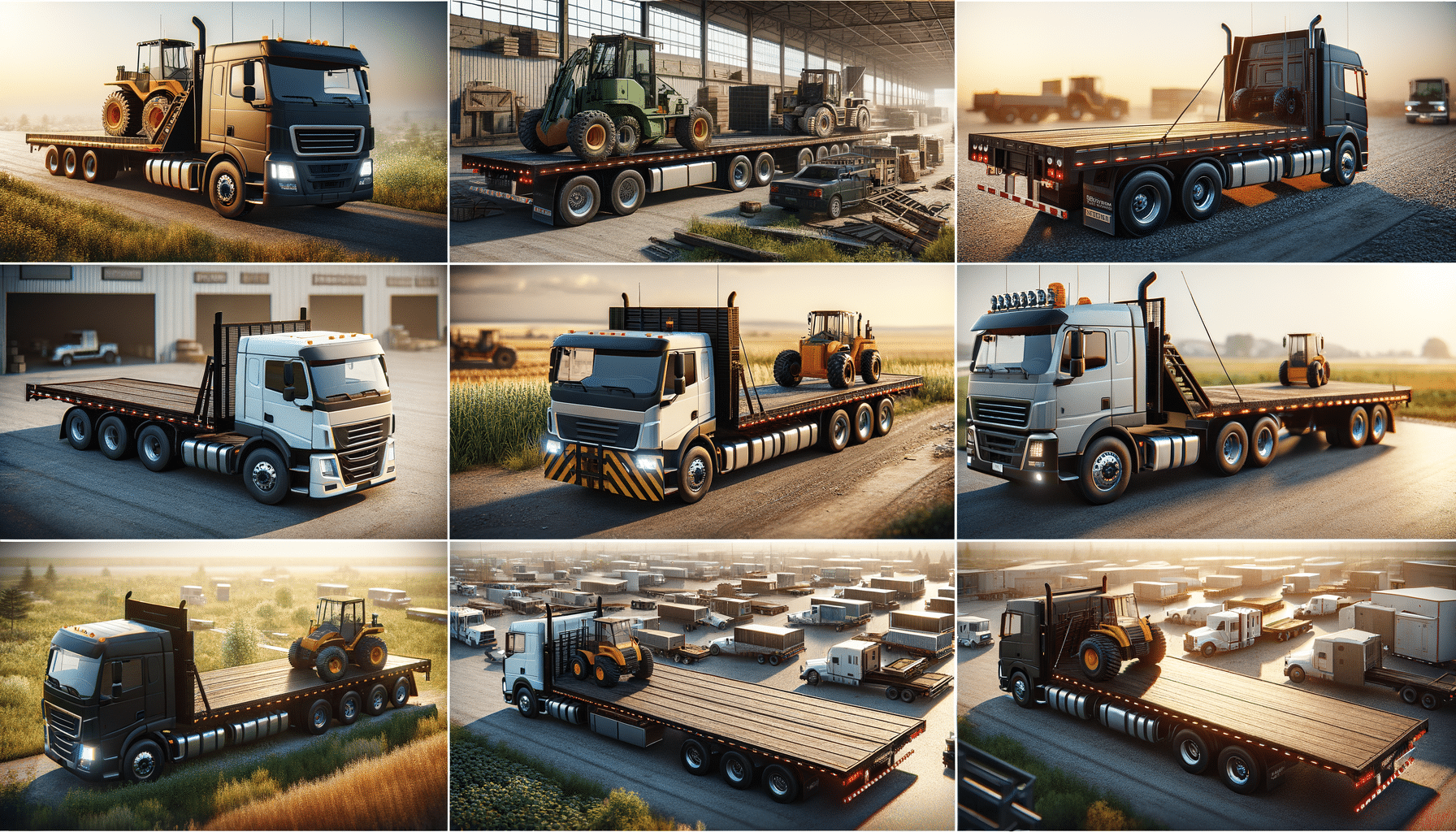
Explore Top-Rated Flatbed Trucks from Local Dealerships
Understanding the Versatility of Flatbed Trucks
Flatbed trucks are known for their adaptability, offering a platform that can accommodate a wide range of cargo types. Unlike enclosed trucks, flatbed models provide an open area, making them ideal for transporting oversized or awkwardly shaped items. This versatility is a significant advantage in industries such as construction, agriculture, and logistics, where the nature of the cargo can vary greatly from one job to the next.
One of the key features of flatbed trucks is their ability to be loaded and unloaded from all sides. This feature is particularly beneficial for transporting heavy machinery or large building materials, which can be challenging to maneuver in enclosed spaces. Additionally, flatbed trucks can be equipped with various attachments and accessories, such as cranes or winches, to further enhance their functionality.
In terms of capacity, flatbed trucks are available in a range of sizes, allowing businesses to select a model that fits their specific needs. Whether it’s a smaller truck for local deliveries or a larger model for long-haul transportation, the options are diverse. This flexibility ensures that flatbed trucks can meet the demands of different industries, making them a valuable asset for many businesses.
Comparing Flatbed Trucks to Other Truck Types
When considering the purchase of a truck, it’s essential to understand how flatbed models compare to other types. Unlike box trucks, which offer enclosed cargo areas, flatbed trucks provide an open platform, making them suitable for transporting items that do not fit within standard dimensions. This open design is a distinct advantage for businesses dealing with irregularly shaped goods.
Another comparison can be made with pickup trucks, which are often used for smaller loads. While pickups are versatile in their own right, flatbed trucks offer greater capacity and can handle heavier and bulkier items. This makes them a preferred choice for industries that require robust hauling capabilities.
Flatbed trucks also differ from dump trucks, which are designed specifically for transporting loose materials. While dump trucks excel in moving items like gravel or sand, flatbed trucks are more suited to carrying solid, stable loads. This distinction highlights the importance of selecting the right truck type based on the nature of the cargo and the specific requirements of the job.
Key Features and Benefits of Flatbed Trucks
Flatbed trucks come with several features that enhance their utility and efficiency. One of the most notable is the ease of loading and unloading, which can significantly reduce turnaround times for delivery and pickup operations. This feature is particularly advantageous in industries where time is of the essence, such as logistics and supply chain management.
Another benefit is the truck’s adaptability to various attachments. Flatbed trucks can be fitted with cranes, forklifts, and other equipment, enabling them to handle a wide range of tasks. This adaptability makes them a versatile tool for businesses that need to perform multiple functions with a single vehicle.
Additionally, flatbed trucks are known for their durability and reliability. Built to withstand heavy loads and challenging conditions, these trucks are an investment that can provide long-term value. Their robust construction ensures they can handle the demands of daily operations, making them a dependable choice for businesses across different sectors.
Choosing the Right Flatbed Truck for Your Needs
Selecting the appropriate flatbed truck involves considering several factors, including the type of cargo, the distance of travel, and the specific requirements of your business. It’s important to assess the weight and dimensions of the items you plan to transport, as this will influence the size and capacity of the truck you need.
Another consideration is the truck’s engine and fuel efficiency. Depending on the frequency and distance of your hauls, you may prioritize a model that offers better fuel economy to reduce operational costs. Additionally, some businesses may require trucks with advanced safety features, such as anti-lock braking systems or stability control, to ensure the safe transport of goods.
Ultimately, the right flatbed truck should align with your business objectives and operational needs. Consulting with a knowledgeable dealer can provide valuable insights into the various models available, helping you make an informed decision. By carefully evaluating your options, you can choose a truck that enhances your business’s efficiency and productivity.
Future Trends in Flatbed Truck Design and Technology
The future of flatbed trucks is set to be influenced by advancements in technology and design. Manufacturers are increasingly focusing on improving fuel efficiency and reducing emissions, driven by environmental regulations and consumer demand for greener vehicles. Hybrid and electric flatbed trucks are emerging as viable options, offering reduced operational costs and a smaller carbon footprint.
Another trend is the integration of smart technology, such as GPS tracking and telematics systems, which provide real-time data on vehicle performance and location. These technologies enable businesses to optimize routes, monitor fuel consumption, and improve overall fleet management.
In terms of design, there is a growing emphasis on enhancing driver comfort and safety. Features such as ergonomic seating, advanced suspension systems, and improved cabin insulation are being incorporated to provide a more comfortable driving experience. As these trends continue to evolve, flatbed trucks will become even more efficient and user-friendly, meeting the diverse needs of businesses in the modern economy.

